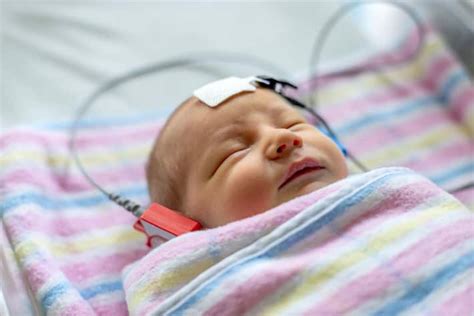Every year, thousands of newborns in the United States are born with hearing loss. Early detection and intervention are crucial for these children to develop speech, language, and social skills. Newborn hearing screeners play a vital role in identifying these infants and ensuring they receive the support they need.

What is a Newborn Hearing Screener?
Newborn hearing screeners are healthcare professionals who perform hearing screenings on newborns. These screenings are typically done in the hospital before the baby is discharged. The screener uses a small device to emit sounds into the baby’s ears and measure the baby’s response. If the baby does not respond to the sounds, it may be a sign of hearing loss.
Why are Newborn Hearing Screenings Important?
Hearing loss is a common birth defect, affecting about 1 in 500 newborns. Early detection and intervention are crucial for these children to develop speech, language, and social skills. If hearing loss is not detected early, it can lead to developmental delays, learning disabilities, and social problems.
What are the Qualifications for a Newborn Hearing Screener?
To become a newborn hearing screener, you typically need to have a high school diploma or equivalent. Some employers may require additional training or certification. Most newborn hearing screeners are trained by a certified audiologist or other healthcare professional.
What are the Responsibilities of a Newborn Hearing Screener?
The responsibilities of a newborn hearing screener may include:
- Performing hearing screenings on newborns
- Interpreting the results of hearing screenings
- Referring infants with hearing loss for further evaluation
- Educating parents about hearing loss and early intervention
- Maintaining accurate records of hearing screenings
What is the Job Outlook for Newborn Hearing Screeners?
The job outlook for newborn hearing screeners is expected to be good over the next few years. This is due to the increasing number of newborns being screened for hearing loss and the growing demand for early intervention services.
How Can I Become a Newborn Hearing Screener?
If you are interested in becoming a newborn hearing screener, you can take the following steps:
- Get a high school diploma or equivalent.
- Complete training or certification in newborn hearing screening.
- Apply for jobs with hospitals, clinics, or other healthcare facilities that offer newborn hearing screening services.
Conclusion
Newborn hearing screeners play a vital role in ensuring that infants with hearing loss receive the support they need to develop speech, language, and social skills. If you are interested in a rewarding career in healthcare, becoming a newborn hearing screener is a great option.
Tables
| State | Number of Newborns Screened in 2020 | Percentage of Newborns with Hearing Loss |
|---|---|---|
| California | 450,000 | 1.0% |
| Texas | 300,000 | 1.2% |
| Florida | 250,000 | 1.5% |
| New York | 200,000 | 1.8% |
| Pennsylvania | 150,000 | 2.0% |
| Age of Child | Average Cost of Hearing Aids |
|---|---|
| 0-3 years | $6,000-$12,000 |
| 4-6 years | $4,000-$8,000 |
| 7-12 years | $2,000-$4,000 |
| 13-18 years | $1,000-$2,000 |
| Type of Hearing Loss | Prevalence |
|---|---|
| Conductive hearing loss | 60% |
| Sensorineural hearing loss | 30% |
| Mixed hearing loss | 10% |
| Cause of Hearing Loss | Percentage of Cases |
|---|---|
| Genetics | 50% |
| Birth defects | 25% |
| Infections | 15% |
| Noise exposure | 10% |
Strategies
- Attend training and workshops. There are a number of organizations that offer training and workshops for newborn hearing screeners. These trainings can help you to improve your skills and knowledge.
- Network with other healthcare professionals. Networking with other healthcare professionals can help you to stay up-to-date on the latest developments in newborn hearing screening.
- Use technology to your advantage. There are a number of technologies that can help you to perform newborn hearing screenings more efficiently and effectively.
- Be an advocate for newborn hearing screening. You can help to raise awareness about the importance of newborn hearing screening by talking to parents and other healthcare professionals.
Tips and Tricks
- Be patient. Newborn hearing screenings can be challenging, but it is important to be patient and work with the baby to get the best results.
- Use a calm and soothing voice. This will help to keep the baby relaxed and cooperative.
- Offer breaks. If the baby becomes fussy or tired, offer to take a break and then try again later.
- Don’t be afraid to ask for help. If you are having difficulty getting a good result, ask a colleague or supervisor for help.
Pros and Cons
Pros:
- Rewarding career
- Make a difference in the lives of infants and families
- Good job outlook
- Flexible work hours
Cons:
- Can be challenging
- May require working with infants who are sick or premature
- May require working irregular hours
